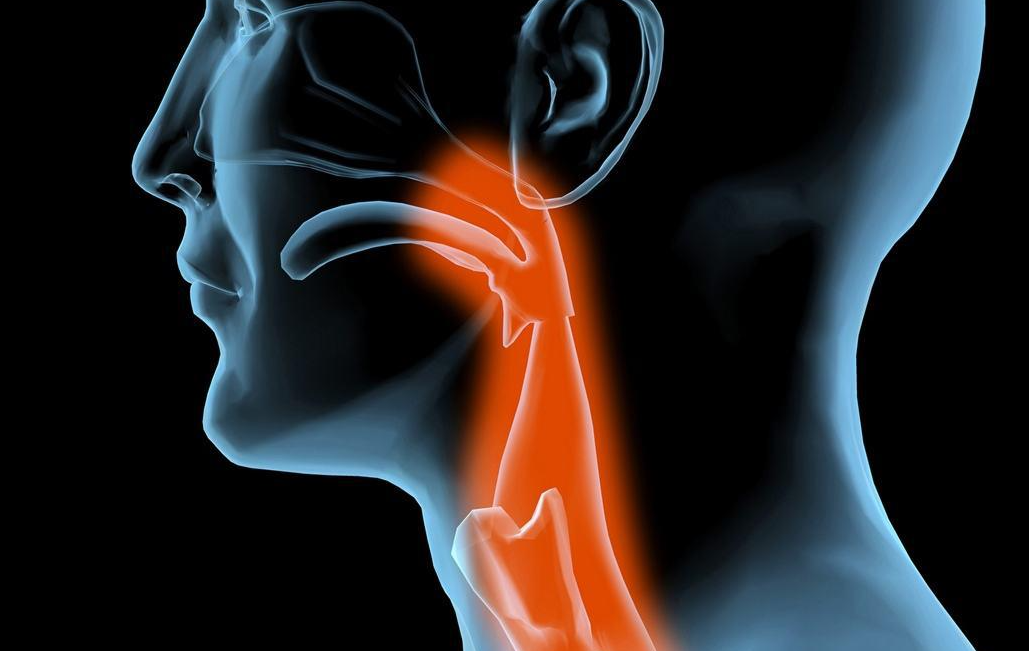
People with upper gastrointestinal symptoms, such as nausea, vomiting, acid reflux, bloating, chest pain, etc.
Esophageal adenocarcinoma is closely related to GERD, especially when the GERD lasts long and the symptoms are severe.
Gerd with obesity further increases the risk of esophageal adenocarcinoma.
People with precancerous lesions or diseases of esophageal cancer, such as esophageal squamous epithelial dysplasia, esophageal intraepithelial neoplasia, etc.
These changes in the body may be an early warning of esophageal cancer
Esophageal passage is slow with a lingering or choking sensation
Patients with esophageal cancer often have a small esophageal opening, difficulty swallowing food and a lingering sense of self.
These symptoms only appear when ingesting food, disappear immediately after eating, and have no relationship with the nature of the food, and even when drinking water, there are the same feelings.
Foreign body sensation in the esophagus
Patients with esophageal cancer will feel that there is a foreign body in the esophagus, feel that the food is attached to the esophagus, or suspect that the foreign body is swallowed by mistake and remains in the esophagus.
There are rice grains or vegetable fragments attached to the esophagus, and they cannot swallow without pain and have nothing to do with eating. Even if they do not swallow, they still feel that there is a foreign body.
The location of foreign body sensation was mostly consistent with the pathological position of esophageal cancer.
Progressive dysphagia
The most obvious symptom of esophageal cancer is a choking sensation when you swallow. As the disease progresses, the symptoms become more pronounced. Often manifested as local small esophageal mucosal congestion, swelling, erosion, superficial ulcers and small plaque lesions, when food passes, there will be swallowing discomfort or swallowing difficulties. If the disease is further developed, there will be a choking sensation, mostly when swallowing food such as pancakes, dry buns or other foods that are not easy to chew thoroughly. The natural course of the disease progresses from an inability to swallow solid foods to an inability to swallow liquid foods.
Retrosternal pain
This manifestation is more common in patients with early esophageal cancer. Often when food is swallowed, there is a slight pain behind the sternum, and the pain can be felt in the area. The nature of pain can be burning pain, acupuncture pain, drag and friction pain.
The severity of the pain is related to the nature of the food, swallowing rough, hot food or irritating food, the pain is more serious; The pain is less when you swallow liquid, warm food. The pain of swallowing food is alleviated or even disappeared after eating. Most of these symptoms can be treated with medication and are temporarily relieved. However, after a few days or months, the condition will recur, and it will occur repeatedly, and it will exist for a long time.hoarse
The recurrent laryngeal nerve from the vagus nerve is located in the muscles of the larynx and is involved in the control of normal vocalization. Damage to the recurrent laryngeal nerve from any cause can cause hoarseness. Once you find hoarseness, you must go to the hospital to determine the cause of hoarseness.
Esophageal cancer itself and metastasis to the lymph nodes can directly invade or compress the recurrent laryngeal nerve, causing hoarseness. Therefore, hoarseness appears, to consider the possibility of esophageal cancer, and improve the relevant examination, to find possible lesions.
Gastrointestinal symptoms
People with digestive symptoms are more likely to develop esophageal cancer, such as gastroesophageal reflux, black stools, and hematemesis. This is because adverse symptoms stimulate the esophagus for a long time, which can lead to esophageal cells being affected by carcinogens during the proliferation process and become cancerous, so people with digestive symptoms have a higher risk of disease than ordinary people.

